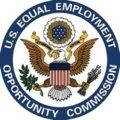 By Gerald L. Maatman, Jr., Christopher DeGroff, Matthew J. Gagnon, and Alex S. Oxyer
By Gerald L. Maatman, Jr., Christopher DeGroff, Matthew J. Gagnon, and Alex S. Oxyer
Seyfarth Synopsis: On January 7, 2021, the EEOC held a public meeting of its fiscal year to consider three separate agenda items, including a final rule updating the Commission’s conciliation procedures, a formal opinion letter concerning Individual Coverage Health Reimbursement Arrangements under the ADEA, and a final rule amending the Commission’s official time regulation for the federal sector. At the conclusion of the meeting, the EEOC voted in favor of the final rules and issuing the opinion letter. These developments are the latest in a series of high priority press releases issued by EEOC over the past year.
The EEOC held its January 7 meeting remotely and, per the requirements of the Sunshine Act, it was open for the public to call in and listen to the proceedings. EEOC Chair Janet Dhillon, Vice Chair Keith Sonderling, and Commissioners Charlotte Burrows, Jocelyn Samuels, and Andrea Lucas were all present to discuss the content of the final rules and formal opinion letter. In a meeting lasting over four hours, the Commissioners substantively discussed all agenda items.
The first agenda item the Commission considered was the final rule updating the Commission’s conciliation procedures. First announced in August 2020, the EEOC’s rule on updated conciliation procedures changes the information disclosure requirements on the EEOC during the conciliation process in an effort to improve the success of the conciliation program and “to increase the effectiveness of [the Commission’s] efforts to achieve cooperation and voluntary compliance.” The specifics of the Rule’s amendments were discussed more thoroughly by us here. The final rule was approved by a vote of 3-2.
The second agenda item was the issuance of a formal opinion letter regarding whether offering an Individual Coverage Health Reimbursement Arrangement (“ICHRA”) as a defined contribution gives rise to liability under the Age Discrimination in Employment Act of 1967 (“ADEA”). ICHRAs are a system by which an employer contributes money into an account for an employee, which the employee then uses to purchase health insurance on their own. The opinion letter addresses whether such benefits are unlawful under the ADEA because they could result in older employees shouldering a larger amount and larger proportion of their health insurance premium costs because of age. The Commission’s opinion letter concluded that ICHRAs, if employers deposit the same dollar amount regardless of age, do not violate the ADEA because all employees receive the same amount from the employer and the employer is not involved in the employee’s decision about health insurance coverage. The vote was 3-2 in favor of the Commission issuing a formal opinion letter.
The third agenda item was a final rule amending the Commission’s official time regulation for the federal sector. The rule clarifies that its official time provision for federal employees does not apply to representatives who serve in an official capacity for a labor organization. “Official time” is the concept that federal employees who are union representatives represent their coworkers on government time. The Commission sought the amendment because it believes that the relevant labor relations statute articulates the best policy for determining if someone receives official time when they act for a labor organization. The final rule was approved by a vote of 3-2.
During the discussion of these agenda items, Commissioners Samuels and Burrows, the two Democratic commissioners in the EEOC leadership, proposed several amendments that were thoroughly discussed by the leadership. However, the outcome of the proposed amendments highlights the politics that continue to be at play at the EEOC, as their proposed amendments were voted down by the Republican Commissioners. Ultimately, the final votes on all three agenda items also highlight the divide between the Republican and Democrat Commissioners, as all three items were passed three votes to two.
Implications For Employers
The changes to the conciliation procedures will result in substantially more transparency in the conciliation process for employers and will create a more consistent process for employers negotiating conciliation terms with the Commission. Overall, all three agenda items continue to demonstrate a pattern of the EEOC issuing more guidance to employers and attempting to provide more transparency in its practices and procedures.
The ongoing changes at the Commission are a must-watch for employers as the EEOC continues in its 2021 fiscal year, especially as the administration in Washington changes at the end of the month.